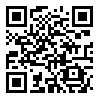مجله رویش روانشناسی از دادن گواهیهای کاغذی معذور است. لطفا تقاضا نکنید. همه گواهی ها در صفحه شخصی کاربران موجود است.
year 13, Issue 8 (automn 2024)
Rooyesh 2024, 13(8): 61-70 |
Back to browse issues page
Ethics code: IR.IAU.SHAHROOD.REC.1401.49
Download citation:
BibTeX | RIS | EndNote | Medlars | ProCite | Reference Manager | RefWorks
Send citation to:



BibTeX | RIS | EndNote | Medlars | ProCite | Reference Manager | RefWorks
Send citation to:
Karimpour Natanzi S, Radfar S, Taher M, Davoudi Monfared E. (2024). The Effectiveness of Acceptance and Commitment therapy on Self-Concealment of Adolescents with a History of Self-Injury admitted to the Psychiatric ward of the Hospital. Rooyesh. 13(8), 61-70.
URL: http://frooyesh.ir/article-1-5692-en.html
URL: http://frooyesh.ir/article-1-5692-en.html
1- PhD student in Psychology, Shahrood Branch, Islamic Azad University, Shahrood, Iran.
2- Associate Professor, Baghiyatallah Al-Azam University of Medical Sciences, Tehran, Iran. ,shokofehradfar@gmail.com
3- Associate Professor, Department of Psychology, Shahrood Branch, Islamic Azad University, Shahrood, Iran.
4- Department of Social Medicine, Faculty of Medicine, Baghiyatallah University of Medical Sciences, Tehran, Iran.
2- Associate Professor, Baghiyatallah Al-Azam University of Medical Sciences, Tehran, Iran. ,
3- Associate Professor, Department of Psychology, Shahrood Branch, Islamic Azad University, Shahrood, Iran.
4- Department of Social Medicine, Faculty of Medicine, Baghiyatallah University of Medical Sciences, Tehran, Iran.
Abstract: (1250 Views)
This research was conducted to determine the effectiveness of acceptance and commitment therapy on the self-concealment of adolescents with a history of self-injury admitted to the psychiatric ward of the hospital. The research method was a single case (A-B-A) with multiple baselines and a one-month follow-up period. The statistical population of the research was adolescents aged 14 to 19 years admitted to the psychiatric department of Baqiyatullah Azam Hospital in Tehran in 2021-2022. 4 people were selected from the statistical population by purposive sampling method. A Self-concealment questionnaire (SCS, 1990) and a list of self-injurious behaviors (ISAS, 2009) were used to collect data. After multiple baselines for each adolescent, an individualized intervention program was presented in 8 90-minute sessions. The data were analyzed using a reliable analysis method and with the help of graphs. The results showed that after receiving training, the participants' scores in self-concealment and self-injury decreased for each participant. Based on the results, treatment based on acceptance and commitment is effective in reducing self-concealment and self-injury in hospitalized adolescents.
Type of Article: Applicable |
Subject:
Clinical Psychology
Received: 2024/09/26 | Accepted: 2024/10/26 | ePublished: 2024/12/10
Received: 2024/09/26 | Accepted: 2024/10/26 | ePublished: 2024/12/10
Send email to the article author
| Rights and permissions | |
 |
This work is licensed under a Creative Commons Attribution-NonCommercial 4.0 International License. |





